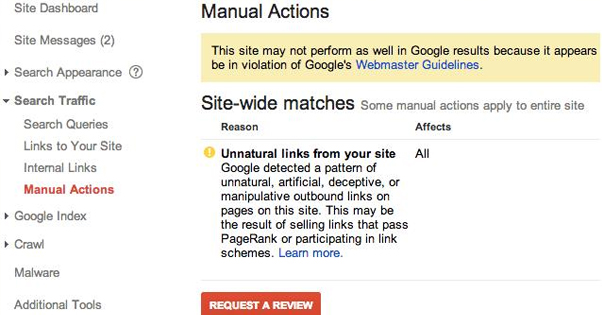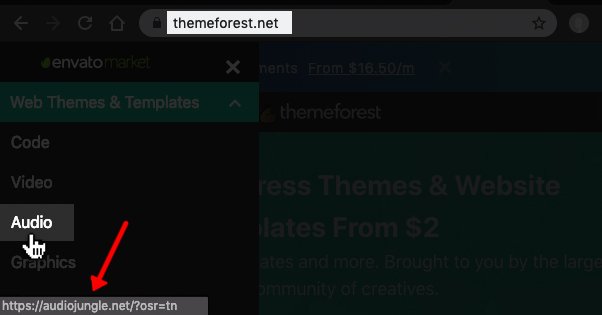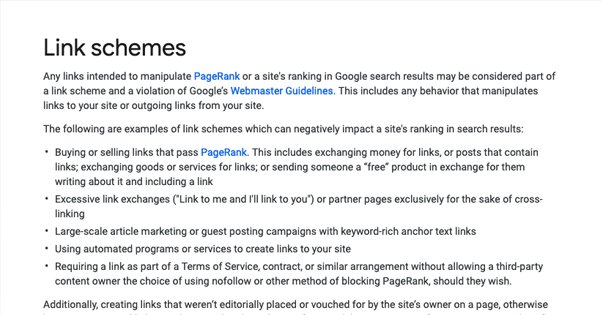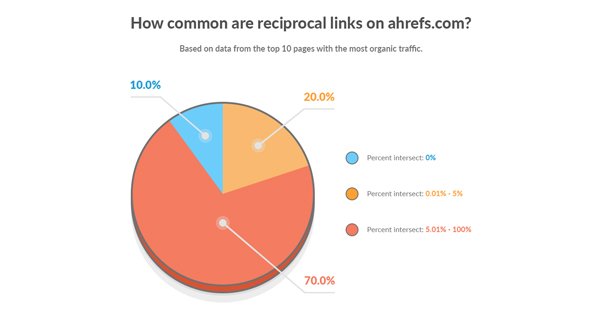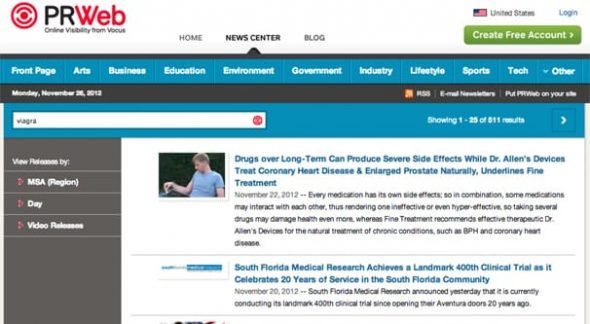Guest posting is a white hat technique with a few gray areas around the edges. It’s also a very old technique that, when used improperly, can cause issues with the current and future growth of your website.
The Situation
So here’s a situation. You run Site A. Someone else runs Site B. You want to guest post on Site B, so you submit a pitch and contact an editor. You and the editor work out a deal; they’ll publish your post, and in exchange, you publish a post they write on your site.
Is this a bad thing? Will this hurt your site? What even is this?
Reciprocal Links
Any time you see the word “reciprocal” in reference to SEO, it’s usually a bad thing. The problem goes back, as most things in SEO do, to links.
The way search engines work, links are treated something like votes. A site with a small handful of links pointing to it is probably a better site than a site that has no links pointing to it. Another site with a few hundred links pointing to it is even better, and one with thousands of links is better still.
Of course, this was easily exploited, back when that was the only rule. Anyone can register a domain and put a link on it pointing at another site, and if you did that enough times, that other site would shoot up through the search engine ranks. As such, Google and other search engines started implementing filters and qualifiers.
Now, you can mark a link specifically to tell a search engine that it shouldn’t count. Adding the nofollow attribute to a link allows you to link in a way that your readers can follow, but the search engines can ignore.
On top of that, various qualities about links can make a link more or less valuable.
- If a link comes from another site owned by the same person, it’s probably less valuable.
- If a link comes from a small, unpopular site, it’s less valuable than a link from a large, popular site.
- If a link comes from user generated content, such as forum posts or blog comments, it’s probably less valuable.
- If a link comes from an out of the way position, like a footer, or a common position, like a navigation link, it’s probably less valuable.
So where to reciprocal links fall into the scale?
A reciprocal link is any link to a site that links to you. That sounds real broad, right? It is! It’s also extremely common. Reciprocal link requests are a common response to blog outreach, and honestly, they’re common even accidentally. If you link to a high quality site and that site later links to you, should you be punished? Should they?
The Hypocrisy of Reciprocity
We live in a world where there are only a few hundred websites a the top levels of popularity, and absolutely none of them are hurt when they link to a site and that site links back to them. The sites they link to aren’t hurt either. If the fact that a link is reciprocal means it’s a bit less valuable than it would be otherwise, that’s more than balanced out by the fact that it comes from a supermassive domain.
At a certain point, a site grows large enough to be above the law. Is Google going to take any real action against Facebook, or Reddit, or Forbes? Of course not. On the other hand, if a couple of small-scale WordPress blogs embarked on reciprocal link building, Google would be more than happy to penalize them into nonexistence.
There has to be a middle ground. At what point does a link scheme simply become part of normal operations? How popular do you have to be to avoid the consequences of your actions?
Context Matters
Basically, the core idea of linking to a site that links to you is not a bad thing. Everyone does it, and most of the time, it’s a beneficial and even sought-after result. You guest post on a site, and that site expects you to link to your post, or at the very least, post links to the post on your social media.
Reciprocal links on their own aren’t likely to hurt your site. Google’s page on link schemes even specifies that link exchanges – reciprocal links – are only a red flag if they’re excessive or exclusively for the purposes of linking.
In other words, as long as the links you’re adding to your pages are contextual and are linking to good sites, you should be fine. You need to ask yourself a few questions to determine if the links you’re posting and the links you’re getting in return are plausibly valuable, or if they will raise red flags.
Is the link relevant to the context of the post it’s in? If I were to pause right now and link you to a top 10 list of best faucet fixtures for a bathroom remodel, that would be a highly suspicious link. Nothing in this post has anything to do with remodels, bathrooms, or faucets. Anyone reading would immediately know something is weird about that link, either that I got paid to shoehorn it in, or I have some other vested interest in it, like it using my affiliate code.
Any link in any post you publish, whether it’s on your site or it’s a guest post on another site entirely, should be contextually relevant. Treat them like “read more” or “further reading” or citations for sources. When you guest post, the link you include back to your site should lead to a blog post that continues to discuss the topic at hand, or at least discusses a relevant topic. That is, unless the publishing site only allows a homepage link or a social media profile, in which case, well, it’s a moot point.
Does the other site have good SEO metrics? Any time you’re thinking about getting a link via a guest post, you need to consider if the link is going to be beneficial. It’s easy to guest post on some random no-name WordPress.com or Blogger site, but that kind of post isn’t going to do anything for you. You can publish all you like on a PBN that has already been demoted and discarded, and it’ll be worthless.
Reciprocal links work fine when they come from and go to good sites. As long as your site is generally high quality and avoids other black hat techniques, a link exchange isn’t going to hurt you.
Have you exchanged links with this site before? This is probably a big one, as far as Google’s determination of whether a link is a shady exchange or not. If you and another site are swapping links every week, it’s going to look sketchy. If you publish a post on the site once every month or two, it’s a lot more likely to be organic.
New Data from Ahrefs
Ahrefs, always on the front lines of link data studies, performed an experiment of their own for reciprocal links. Since reciprocal linking is called out by Google as a black hat technique worth a penalty, and since it’s exceedingly common and no one can recall being penalized for it, it makes sense that someone should do a study. You can read the study here.
Basically, what Ahrefs did is studied linking data between sites in their index. Sites with at least 10,000 visits per month from Google as estimated by Ahrefs were analyzed to see how many of the domains they link to are domains that link back to them, with followed links.
What they found is not quite what I expected, but makes sense. The highest percentage of domains had zero percent overlap, which means they had no reciprocal links. I can see there being three reasons for this:
- Some site owners are paranoid about reciprocal links and thus avoid them at all costs.
- Some site owners exclusively link to high quality sites while being relatively low quality themselves, meaning they don’t earn the backlinks.
- Some site owners don’t do much with links at all, or enforce a site-wide nofollow policy, making the links invisible to Ahrefs and Google for this study.
One issue with the study, that Ahrefs points out, is that it falls victim to survivorship bias. After all, the sites that are penalized for reciprocal linking don’t reach 10K visits per month, and thus won’t show up on the study.
Nevertheless, reciprocal links are extremely common, and are simply a byproduct of growing a website. You’re not going to get anywhere if you agonize over every link, and remove your links when a site you linked to decides to link to you.
Links? What About Guest Posts?
So, this is an article on a site called Guestpost.com, and it’s talking all about links and not guest posts, so what’s the deal?
Personally, I feel like guest posting adds more to the equation. Reciprocal linking is an issue when you send out emails asking for links in exchange for links, and even then, it’s usually when those links are put into sidebars, footers, or other common display locations.
When you’re guest posting, a reciprocal link is really more of a promotional technique, or even a content exchange. You write a post for a site, and that site publishes it with a link back to your site. You promote the post by linking to it in another post you write for your site, or you link to their site in another post for a different reason, not even to your own guest post. There’s nothing wrong with that.
In some cases, it’s a full content exchange, where you guest post for their site and they guest post for yours. Is there anything wrong with that? You both can have bios linking back to your sites, or link in your content to your other content on your home site. That’s not a reciprocal exchange worth penalizing, it’s just people networking.
From Google’s perspective, even if you do this exchange regularly, there’s nothing to penalize. As long as you’re both writing content that is relevant to the site it’s being published on, and you’re linking to content that is relevant to the sites in question, what possible problem could there be? Heck, there’s no way Google can even determine the difference between an infrequent contributor and a guest contributor without you explicitly saying “this is a guest post from X” in the intro or byline.
A Final Verdict
I have not performed any studies into reciprocal link building. Ahrefs, as mentioned above, performed a study that compares incidence of link overlap to frequency, but it’s not a perfect study. In fact, they tell you how to go about performing a real study:
- Create a bunch of websites and build a similar link profile for each of them.
- Wait until the sites are ranking in Google for some keywords.
- Build reciprocal links to some sites while leaving others as a control group.
- Determine if the reciprocal linking hurts the site or not.
If anyone wants to perform that study, by all means, please do. Publish your results and I guarantee you’ll get a bunch of links from a bunch of SEO focused sites looking to cite you as a reason to dive into or avoid reciprocal linking. I would also add the caveat that you should avoid creating those reciprocal links between sites you create, as that can look like a PBN, and that adds a confounding variable.
Personally, I don’t believe reciprocal links or reciprocal guest posting will hurt your site, so long as there’s contextual relevance and high quality content at both ends. It’s only when you fail to meet those requirements that bad things start to happen. I’ll be happy to be proven wrong if anyone wants to perform an experiment, but until then, keep on keeping on, my friends.
 ContentPowered.com
ContentPowered.com

